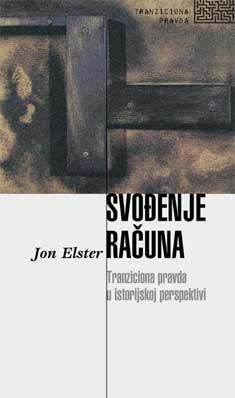
Svođenje računa – tranziciona pravda u istorijskoj perspektivi
This book offers an analysis of transitional justice - retribution and reparation after a change of political regime - from Athens in the fifth century BC to the present
More...We kindly inform you that, as long as the subject affiliation of our 300.000+ articles is in progress, you might get unsufficient or no results on your third level or second level search. In this case, please broaden your search criteria.

This book offers an analysis of transitional justice - retribution and reparation after a change of political regime - from Athens in the fifth century BC to the present
More...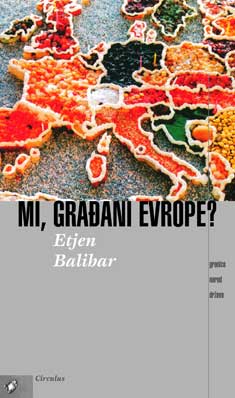
Articles collected in this volume, written mostly in the past five years, attempt to develop themes already articulated in the Les Frontières de la démocratie. The book deals with historical and political borders, as places where citoyenneté and la civilité are being challenged, as loose or firm battle lines where democracy could be tamed or gain new inspiration. It deals with ambiguity of the term »community«, as community of peoples, community of citizens, national community striving to become trans-national on various levels where it is being constructed and sometimes de-constructed. (From Preface)
More...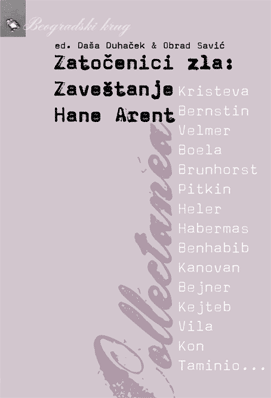
Hannah Arendt was one of the foremost political thinkers of the twentieth century. This collection examines the themes of her multi-faceted work, from her theory of totalitarianism, revolution as a ‘new beginning’, conception of freedom, responsibility, guilty, and her controversial idea of the ‘banality of evil’. Each chapter examines the political, philosophical, and historical concerns which shaped Arendt’s thought, and which promoted her to become one of the most unapologetic champions of the modern political life in the Western traditions.
More...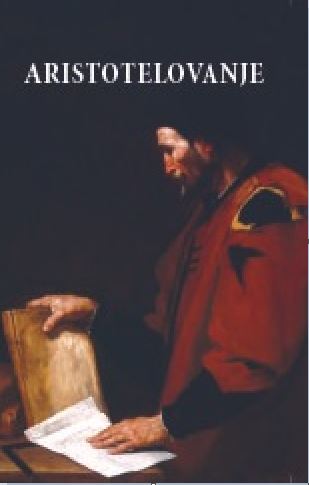
U organizaciji Katedre za filozofiju i sociologiju Filozofskog fakulteta Univerziteta u Zenici i Centra za društvena i interreligijska istraživanja Univerziteta u Zenici, u Zenici je 22. decembra 2016. godine održan okrugli sto pod nazivom Aristotelovanje u povodu 2400 godina od rođenja starogrčkog filozofa Aristotela. Direktan povod za ovaj skup je proglašenje 2016. godinom Aristotela od strane UNESCO-a. O Stagiraninu su tako govorili poznavaoci njegove filozofije iz Bosne i Hercegovine i to: prof. dr. sc. Željko Škuljević (Filozofski fakultet Univerziteta u Zenici), prof. dr. sc. Miodrag Živanović (Filozofski fakultet Univerziteta u Banjoj Luci), prof. dr. sc. Damir Marić (Filozofski fakultet Univerziteta u Sarajevu), prof. dr. sc. SpahijaKozlić (Pravni fakultet Univerziteta u Zenici), doc. dr. sc. Bernard Harbaš (Ekonomski fakultet Univerziteta u Zenici), prof. dr. sc. Nebojša Vasić (Filozofski fakultet Univerziteta u Zenici) i zenički književnik Aras Borić. Kako svjedoči Diogen Laertije, Aristotel (stgr. Ἀριστοτέλης, Aristotelēs; Stagira u Trakiji, 384. p. n. e. – Halkida, 322. p. n. e.) je rođen od oca Nikomaha i majke Faestide. Još dok je Platon bio živ, Aristotel je napustio učiteljevu Akademiju. Kasnije, kada se vratio, vidio je da je ona u rukama drugog učitelja pa je osnovao vlastitu školu u Likeju (Liceju), na jednom šetalištu gdje je običavao šetati s učenicima i tako im nekada držati predavanja i rasprave, odakle je ona dobila naziv Peripatetička škola (stgr. περιπατητικός, peripatetikos), dok je njegova filozofija prozvana peripatetičkom. Neki ipak smatraju da je naziv potekao od šetnji s Aleksandrom Makedonskim s kojim je razgovarao o filozofiji i drugim temama. Boravio je u Makedoniji na poziv Filipa Makedonskog kako bi poučavao njegovog petnaestogodišnjeg sina Aleksandra, a potom je stigao u Atinu i upravljao svojom školom nekih trinaest godina. U Aleksandru Makedonskom Aristotel je imao dostojnijeg učenika i vaspitanika nego što je Platonov Dionizije. Nakon toga se povukao u Halkidu i tamo umro od bolesti u dobi od šezdeset i tri godine. Prema pisanju Diogena Laertija za svog života je napisao ukupno 445.270 redova teksta.
More...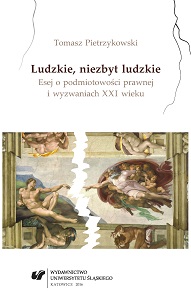
The book explores the legal conception of personhood in the context of the contemporary challenges, such as the status of non-human animals, human-animal biological mixtures (chimeras and hybrids), cyborgisation of the human body or developing technologies of artificial autonomic agents. It reveals the humanistic assumptions underlying the legal approach to personhood and examines the extent to which they are undermined by the present and imminent scientific and technological progress. The book discusses also some potential ways in which the most compelling problems related to the shape of personhood in law could be addressed. In particular, it outlines the conception of non-personal subjecthood that could provide an adequate normative solutions for the problematic status of sentient animals and some other kinds of entities. Arguably, non-personal subjects of law ought to be regarded as holders of one and only right only — the right to be taken into account (to have one’s vital interests taken into account and balanced with all other competing considerations). The proposed idea of non-personal subjecthood is based on inclusive humanism as opposed to the current exclusive and exceptionalist version of the humanistic foundations of the law. Inclusive humanism as the basis of the legal approach to personhood does not repudiate fully the speciesm favouring human beings. The reasons to maintain minimalized speciesm in the way in which law regards human and non-human entities are demonstrated and defended.
More...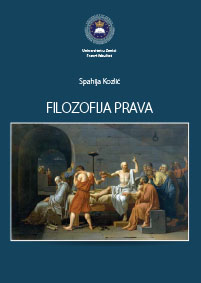
Knjiga Filozofija prava rezultat je, s jedne strane, mog višegodišnjeg filozofskog istraživanja i promišljanja fenomenâ koje pokriva ova disciplina praktičke filozofije, te, s druge, predavanja istoimenog predmeta i interaktivnog rada sa studentima završnih godina dodiplomskog studija Pravnog fakulteta Univerziteta u Zenici. Naravno, upućena je najviše njima – studentima Pravnog fakulteta Univerziteta u Zenici, kao i svim drugim studentima koji slušaju ovaj ili sličan predmet na pravnim fakultetima u Bosni i Hercegovini i široj regiji, te onim čitaocima koje zanima filozofska refleksija prava. U svakom slučaju, tokom pisanja ove knjige nastojao sam stil i metodologiju izlaganja tako prilagoditi kako bi ona uistinu bila udžbenik iz filozofije prava koji će pomoći studentima u savladavanju gradiva predviđenog nastavnim planom i programom. Takva orijentacija, bez obzira na brojne teškoće, podrazumijevala je zauzimanje jedne, uvjetno govoreći, nezavisne pozicije spram vlastitih vrijednosnih i svakih drugih stavova u i oko filozofije, posebice filozofije i aksiologije prava.
More...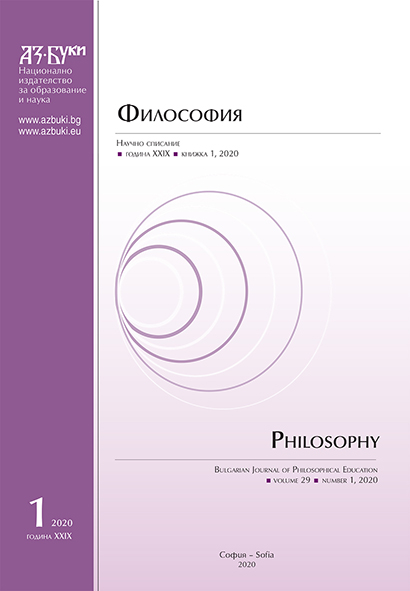
The paper looks at the problem of national and human security in many parts of Africa today, seen in the inability of most governments to guarantee the adequate protection, peace and well-being of the citizens due in part to foreign dominating ideas. Cabral in his cultural and political thought offered philosophical insights and applied culture to the analysis of security for modern Africa. His theory of security is build upon the struggle for liberation from the colonial ordinance and his philosophy of identity is based on a combination of theory and praxis in the pursuit of reality. This requires the unearthing of the deep cultural roots and causes of things. This harmonization of interests is not just between men and men, but also between men and nature. The question is; what principles and values can best facilitate the crucial sense of security in most African societies?
More...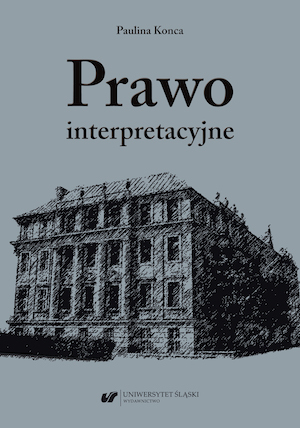
Although the interpretation of legal rules has a direct impact on the content of judicial decisions, law of interpretation has not yet been the subject of a monographic study in Polish legal theory. The author describes the status of interpretative directives in various legal cultures (e.g. Poland, Spain, Australia, USA, Great Britain, Ireland and Latin America) and analyses the problems caused by enacting interpretative directives. She puts forward proposals for the creation of the law of interpretation and analyses the nature of interpretative directives. An important advantage of the work is the reference to a wide range of literature and jurisprudence from many jurisdictions.
More...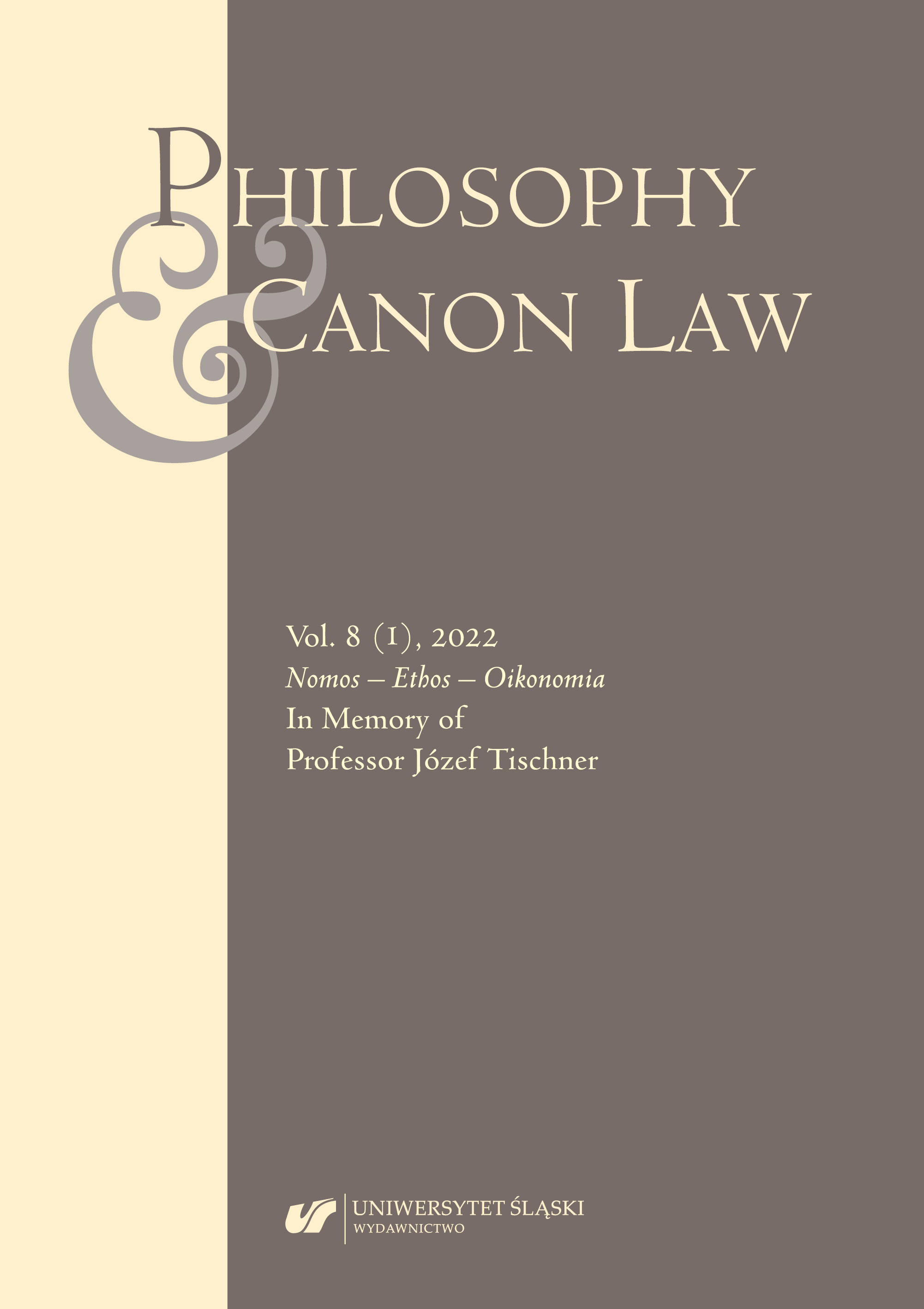
The present article examines Józef Tischner’s idea of upbringing (wychowanie) in establishing the new awareness of solidarity among the Polish workers and people through an awakening to conscience. The present moment served as a revolutionary alternative to socialism. I look at Tischner’s critique of Marxism and the central issue surrounding base and superstructure. Then I turn to his recovery of the Polish tradition of ethical ideals, especially in the person of Maximilian Kolbe and John Paul II. The text provides a detailed analysis of the chapter on upbringing in The Spirit of Solidarity. Tischner’s notion that upbringing is a personal bond established in trust to live in hope for improvement in mind and heart is placed in the context of the solidarity as a social bond establishing an ethical community transcending the political quest for power and the need to find an enemy. The text analyzes the various counterfeit forms of education in order to deepen our awareness of the meaning of authentic upbringing. Salient points of his teaching are discussed in conclusion.
More...
Moral theology concerns the morality of society and acts of an individual or a group of individuals that constitute that particular society. Morality teaches us to properly respond to God’s calling, so that we can fulfil our ultimate goal. The Catechism of the Catholic Church, regarded as a compendium of the doctrines of the magisterium of the Church, can also serve as a valuable source for teaching moral theology. In the first section (“Man’s Vocation Life in the Spirit”) of the third part (“Life in Christ”) of the Catechism of the Catholic Church, we can learn that man has been created “in the image and likeness of the Creator” (chap. 1, art. 1), where solidarity plays a significant role. The present paper analyses this issue.
More...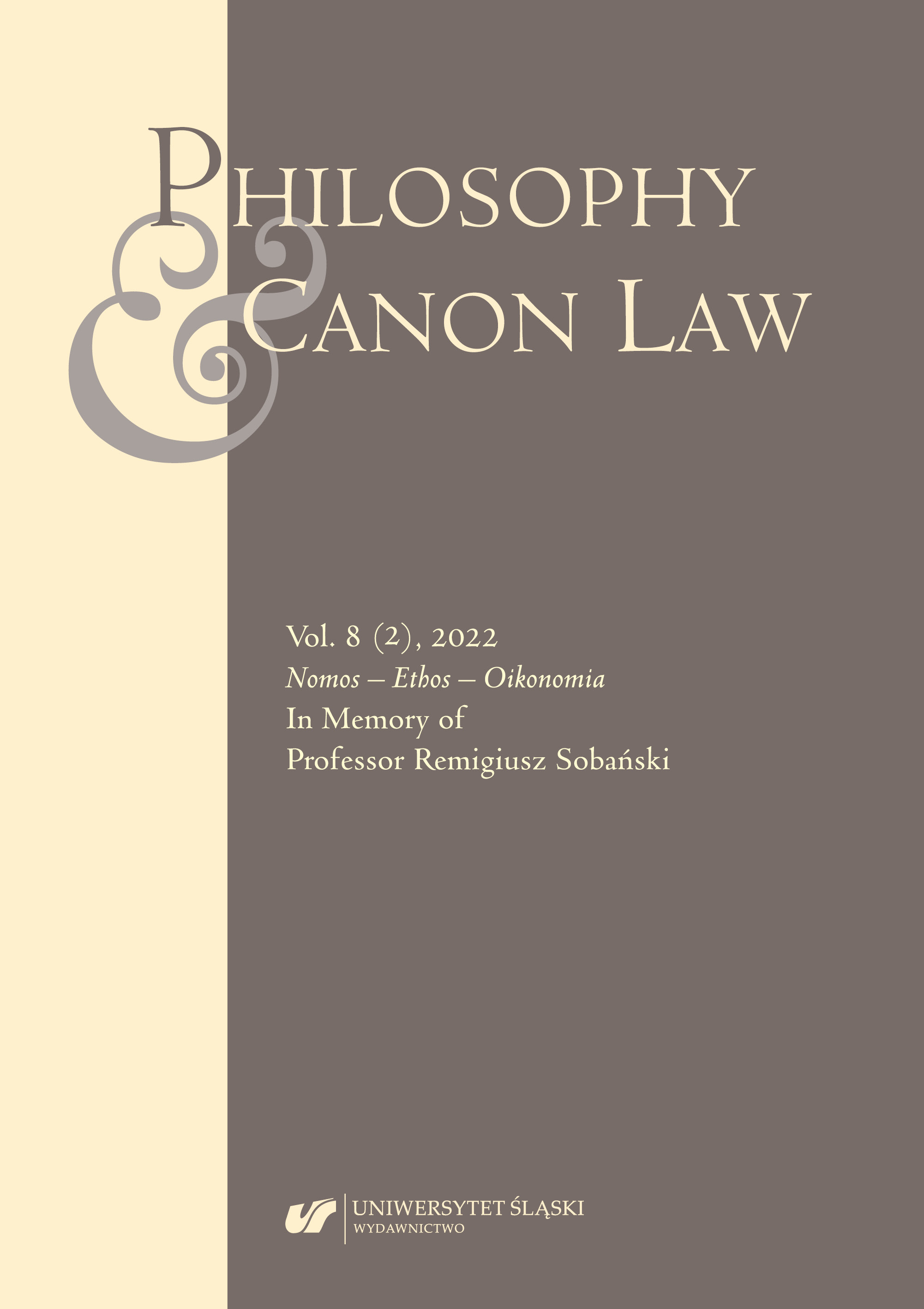
The Vatican II fundamentally changed the ecclesiastical view towards the human person. Especially in Nostra aetate, Gaudium et spes, and Dignitatis humanae it strengthens the dignity of the human person and personal freedom as base for a world with equal rights for all mankind. Therefore, the council qualified discrimination of all kind as against God’s will. These statements have a huge impact on the necessary further development of theology and canon law.
More...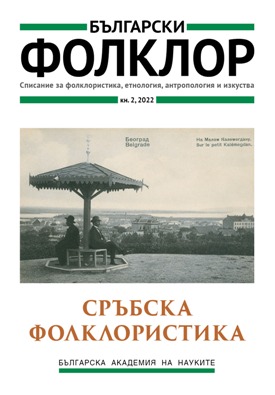
A large number of oral stories about Prince Miloš Obrenović (1780–1860) are preserved as an integral part of wider biographical, autobiographical, memoir, diary, historiographical, epistolary, travel and documentary sources. By identifying and separating anecdotes, historical legends, life stories and proverbs from the tissues of more elaborate narrative units, an extensive corpus is formed in which, through a series of narratives and variants, the narrated biography of Prince Miloš develops in the spheres of his military, political, diplomatic, social and private life. Given the fact that Prince Miloš appears as a very attractive and stimulating person for narrative shaping, the examples of his special administrative and judicial practice, which are characterized by elements of humorous, unusual, witty, but also arbitrary, unscrupulous and cruel treatment emerge as particularly interesting topics. He becomes a type to which are connected themes and motifs well known not only in the domestic tradition but also in the international narrative fund.
More...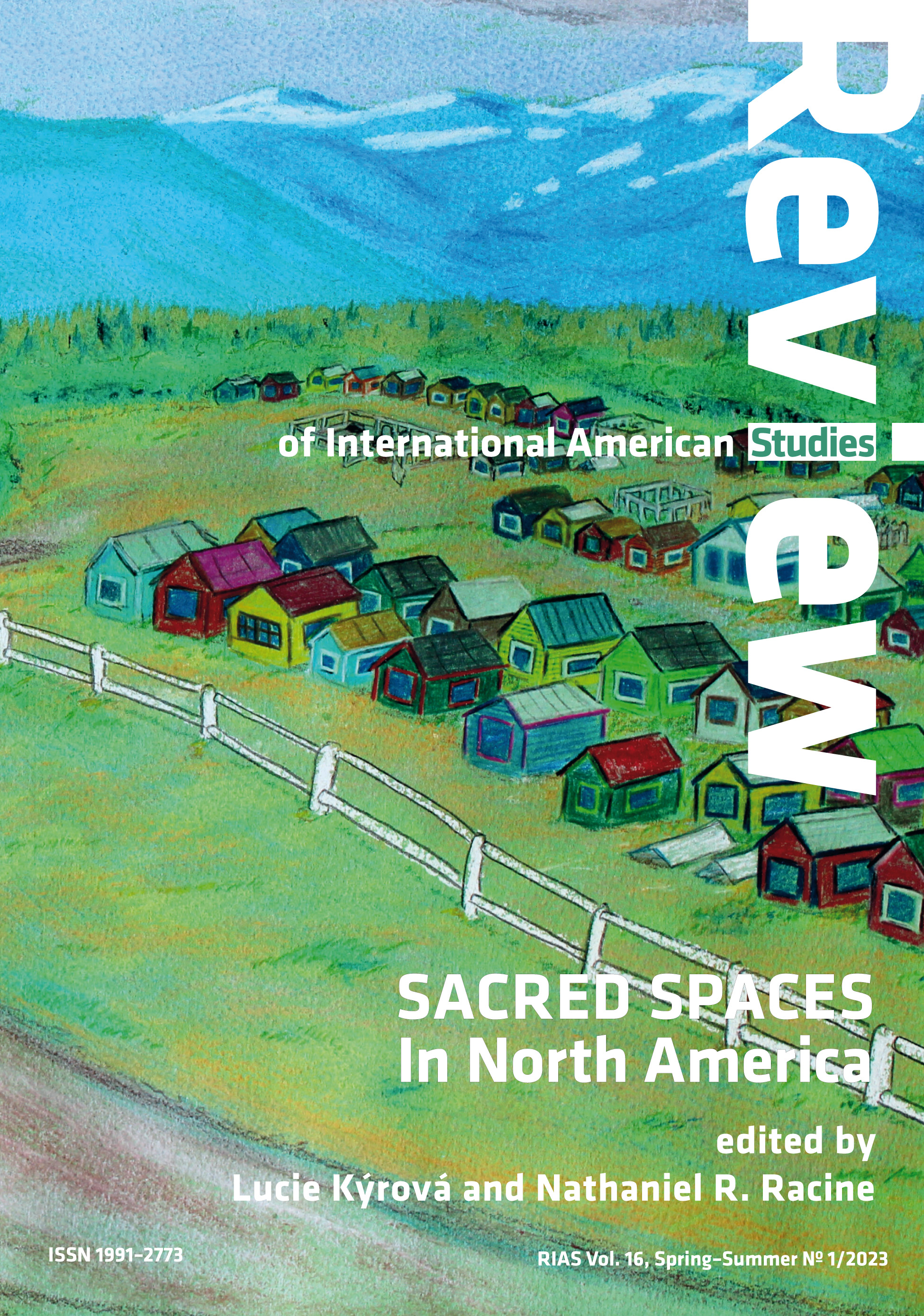
Moundbuilding was a preoccupation for the original, Indigenous occupants of the eastern portion of North America for at least six centuries. Approximately two millennia ago, the inhabitants of a broad swath of land primarily east of the Mississippi River and extending from the gulf to the Great Lakes, engaged in the production of conical, geometric, and effigy shaped earthen mound constructs. The efforts, from small to monumental, reflect a precision, often reflecting astronomical phenomenon. The proliferation of mounds and astronomical focus suggest the moundbuilder cultures privileged these activities, they had purpose. Today many remnants of these extraordinary efforts remain despite the systems of erasure that are characteristic of settler colonialism.Two such sites are the focus of this paper on “sacred space”: the Newark Earthworks and Serpent Mound. Both sites are short-listed for UNESCO World Heritage status. The Newark Earthworks as part of a larger package referred to as “The Hopewell Ceremonial Earthworks” and Serpent Mound is a stand-alone nomination. The names of the sites are exemplary of the “logic of elimination,” central to settler colonialism in the Americas (Wolfe). Newark, Hopewell, and Serpent all names given by dominant culture with no relation to the Indigenous architects and builders. They endure and resist, despite a long and complicated history of dominance. While the focus of this paper is on contemporary contestation surrounding the sites, this paper begins with a close description of the sites and offers a brief overview of contact. This historical contextualization serves to demonstrate the ramifications of settler colonialism, which ruptured connections between Indigenous people and this land while simultaneously reinterpreting the sites as distinctly American. This lays a foundation for the web of narratives refashioned and recirculated in today’s contest over World Heritage status. Central to these narratives is ascribing the label of “sacred” to the sites. The vast number of constituents who claim a seat at the table regarding “ownership” and a voice regarding the sites is astounding. These include governmental agencies from the local to global, historical societies, Native peoples, academics, golfers, and small pockets of the public. Into this mix we can include those with religious/spiritual claims such as the Mormons, new-agers, fundamentalist Christians, and contemporary Native tribes. Many of these stakeholders have come together to work toward the coveted World Heritage Status. But, if and when it happens, whose story will dominate, who will make decisions, which voice will be heard?
More...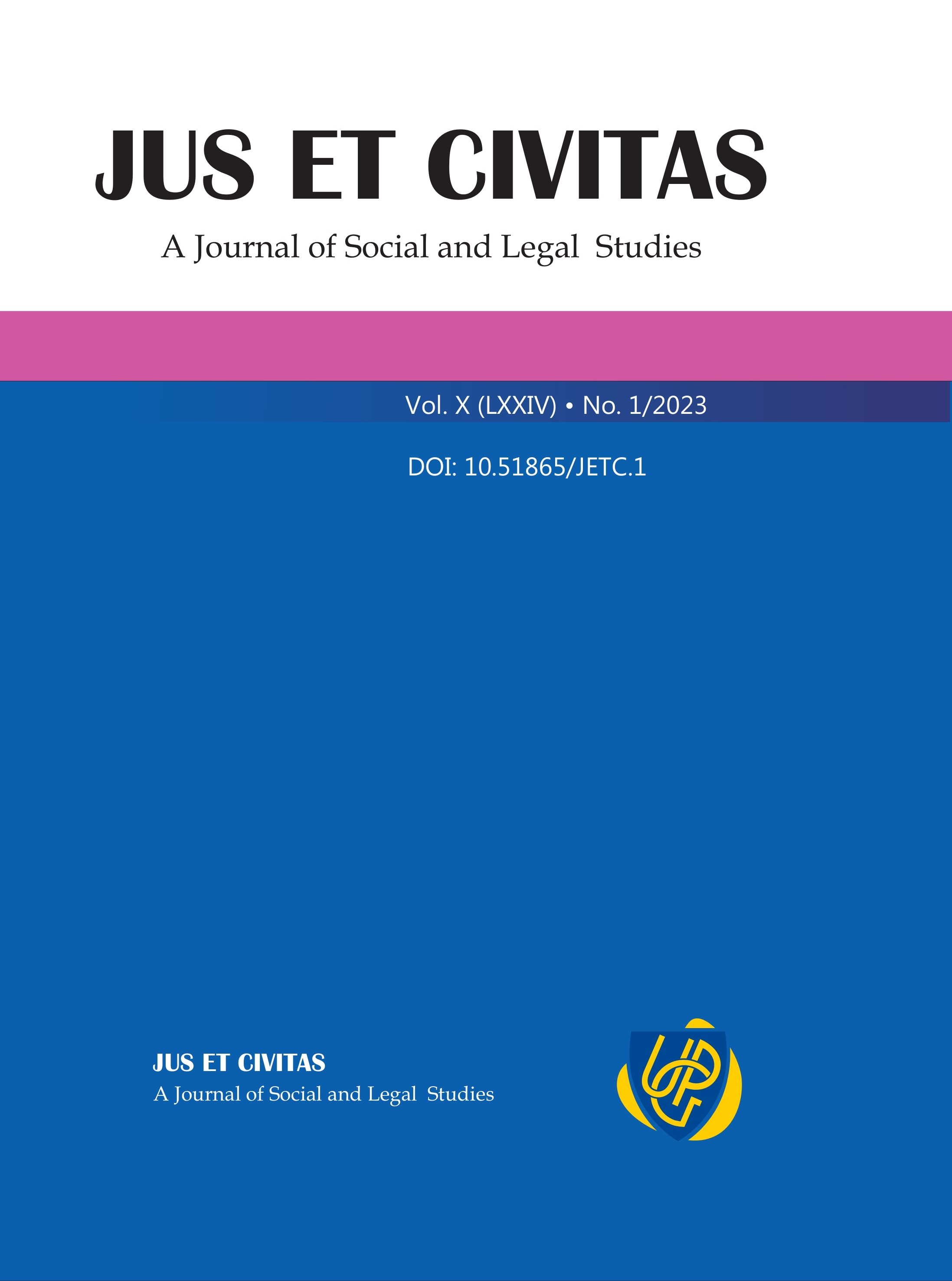
The text uses two tools to interpret the relationship between employee and employer. The first tool is anthropological, while the second is a legal one. In this way, the complex relationship between an employee and an employer is analyzed in the larger context of doubling the real identity of the two participants with a virtual identity for each of them. Therefore, the relationship will include two levels of reporting from the employee to the employer and vice versa. The employee will be viewed by the employer both as a natural person, therefore real, but also as a virtual person with the virtual identity or profile. In turn, the employee will refer to the employer both as a legal person and as a virtual legal person. In the following lines we propose to establish a possible ethical boundary between the employee and the employer as virtual entities capable of orienting the anthropological and legal analysis.
More...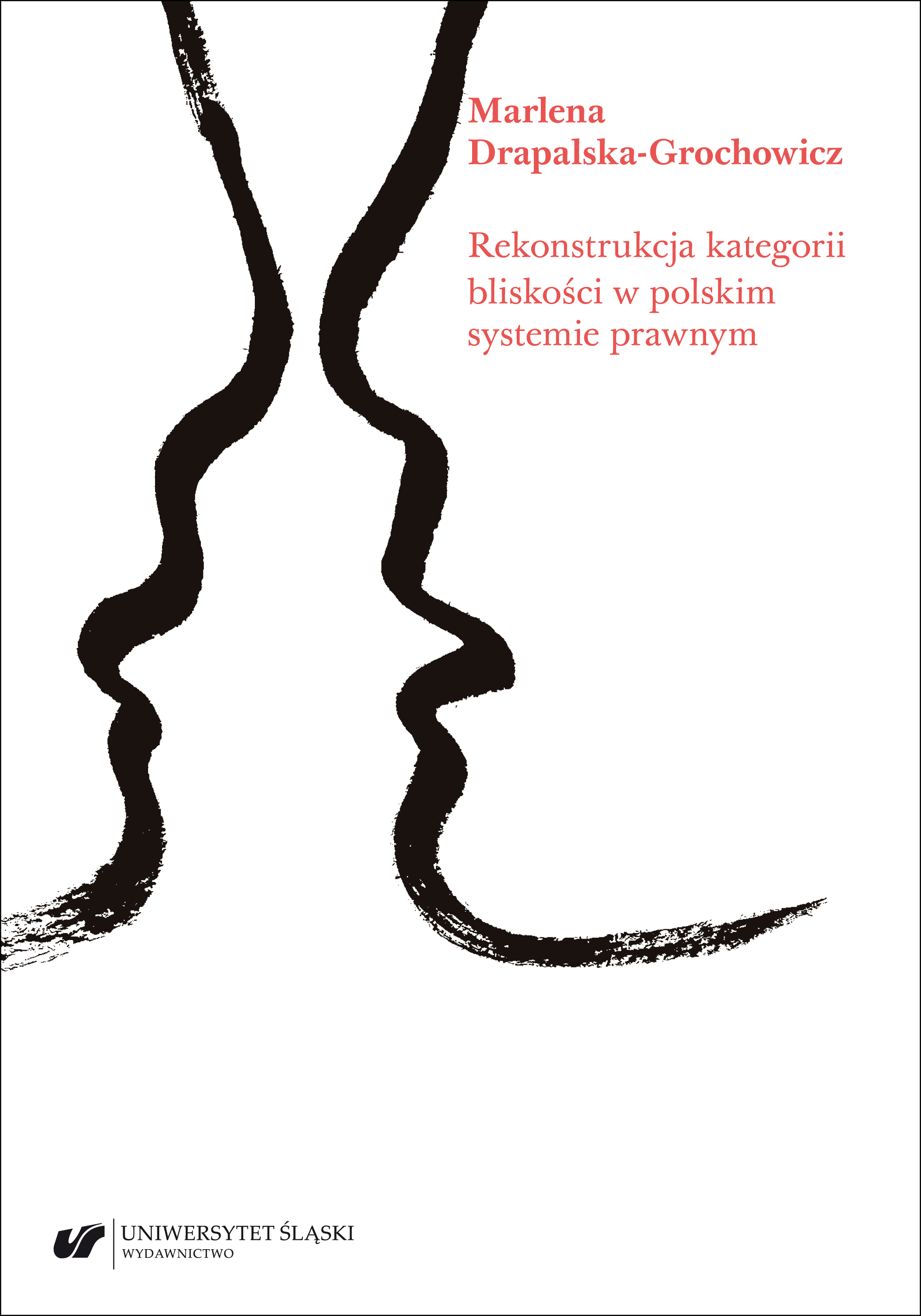
As Martin Heidegger wrote, “In being there lies an essential inclination towards closeness.” However, explaining what this inclination means is not an easy task. Reconstruction of the category of closeness in the Polish legal system attempts to answer the question of the meaning of closeness in law, using a psychological view of the phenomenon. Although intuitively it might seem that law and closeness have little in common, this monograph reveals the complex relationship that exists between them. The non-obvious nature of these relations is influenced by the fact that various understandings of closeness are accepted on the ground of law. In turn, depending on this, the law can be an important instrument for either supporting or lowering the level of fulfillment of needs in close relationships.
More...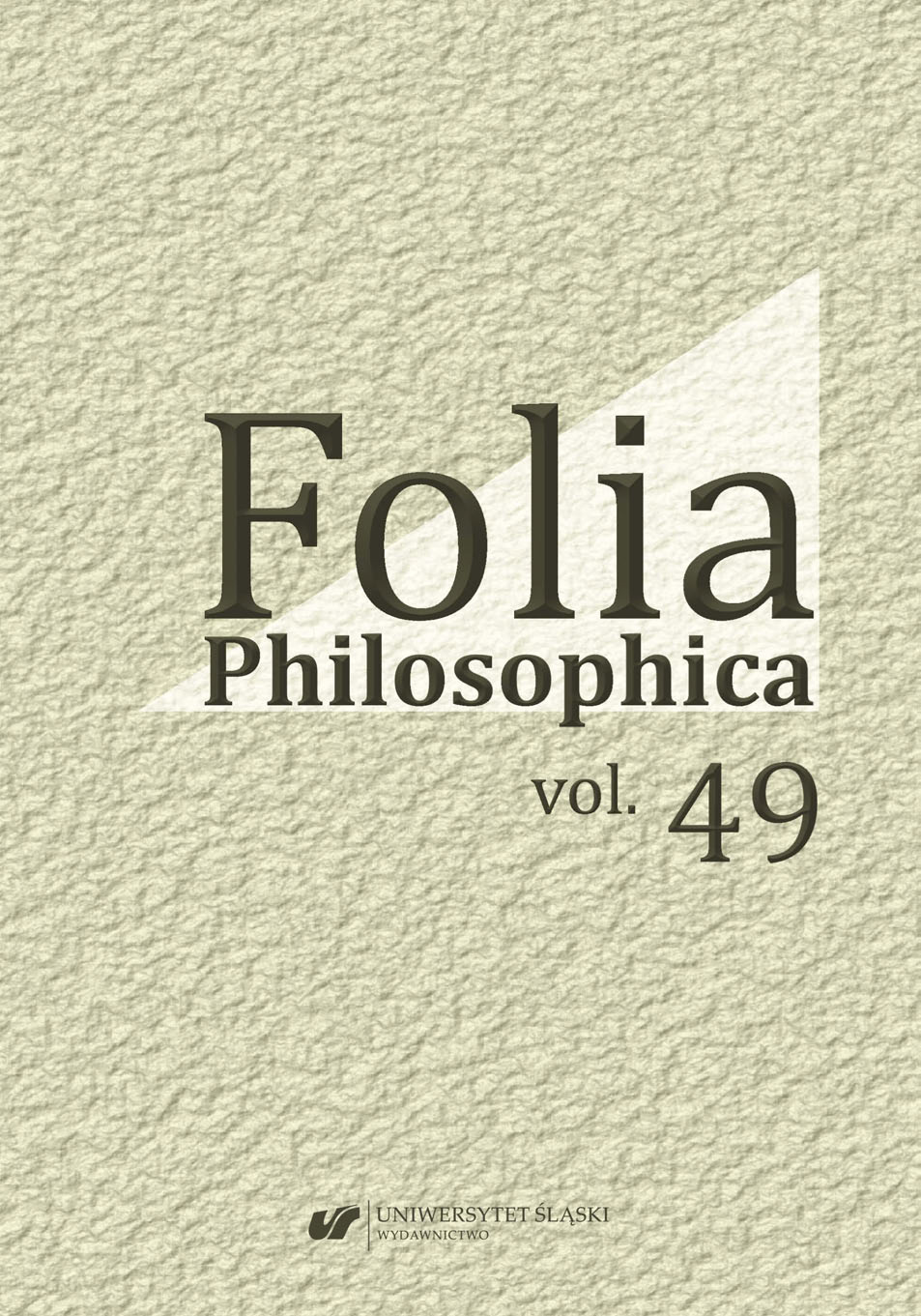
This article aims to present a detailed analysis of the “Christian natural philosophy” elaborated by the German humanist philosopher and theologian Otto Casmann (1562–1607) in his various works. To this end, Casmann’s general idea of philosophia Christiana is discussed and critically evaluated. Regarding natural philosophy, or physics, attention is paid mainly to topics such as cosmogony and cosmology, which Casmann promised to have developed biblically and independently of the pagan (namely Aristotelian) tradition. However, when Casmann’s natural philosophy is analyzed in detail, his resolute emphasis on the literal reading of the Bible, the cornerstone of his entire concept, turns out to be problematic. Similarly, despite his resolutions, his natural-philosophical views are, to a considerable extent, still dependent on Aristotelian terms and concepts.
More...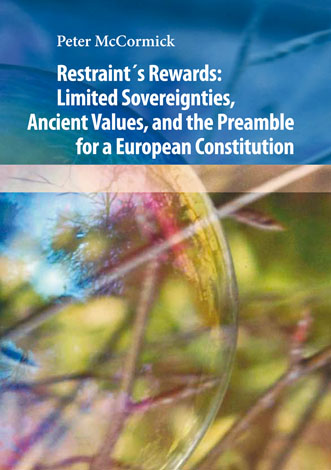
Any EU constitution tomorrow will need to embody basic European ethical values. Yet the identity of such values and their sources remain strongly controversial. Peter McCormick retrieves from cultural origins of some major European values a basic ethical value of a measured and critically reasoned restraint in all things. At the same time he argues that this originary ethical value entails a renewed understanding of political, social, and individual sovereignties no longer as almost absolute but as necessarily limited. The rewards for polities of fully assuming such a basic ethical value turn out to include the ineluctable necessity for the rule of law, the constitutionalisation of social pluralisms, and the entrenchment of personal dignity.
More...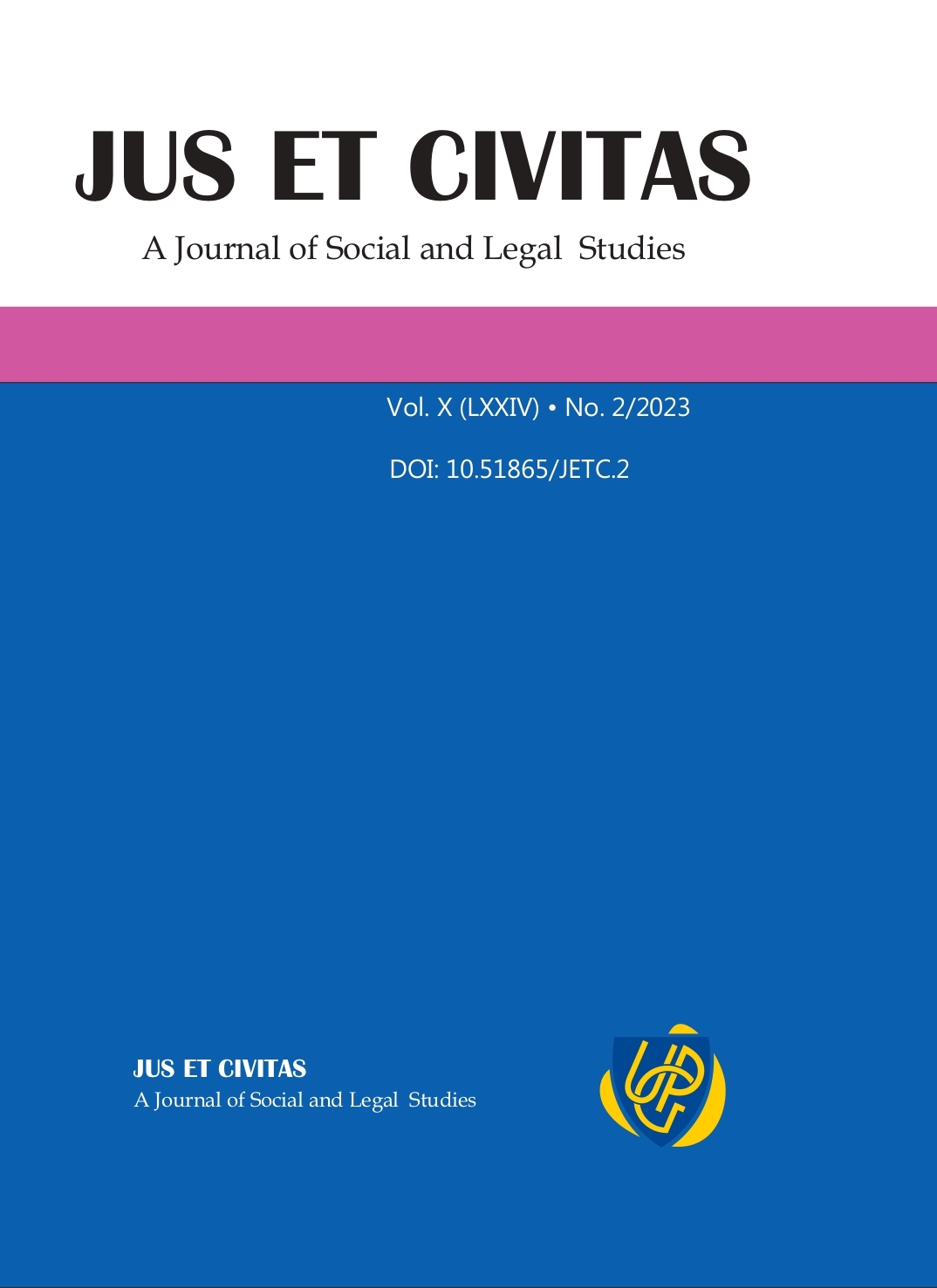
The present text aims at a conceptual analysis of the legal and moral bases involved in building and understanding the employment relationship between employer and employee from the point of view of the idea of employee fidelity to the employer. That is why the text contains, on the one hand, a legal analysis of the presumptive primacy of the employer's interest in the employee in the partnership assumed by the employment contract, especially when the employee's obligation to fidelity to the employee is associated with the idea of loyalty, and on the other hand, the article goes beyond the legal framework of the employment relationship to that of the social and moral philosophy that the employee-employer relationship assumes. For example, in the core of the moral philosophy analysis is debated the theoretical basis on which a tacit assumption of the organizational values that the employee accepts by signing the employment contract can be based and by virtue of which the employer in turn can justifiably request from the employee a fidelity and loyalty beyond the explicit provisions of the employment contract. Finally, the article tries to show that an integrative concept such as integrity, borrowed as an extension from the field of business ethics (codes of ethics and professional integrity), can be a useful solution in the balanced distribution and understanding of obligations and permissions between employee and employer in the case of the unwritten moral area of the employment contract.
More...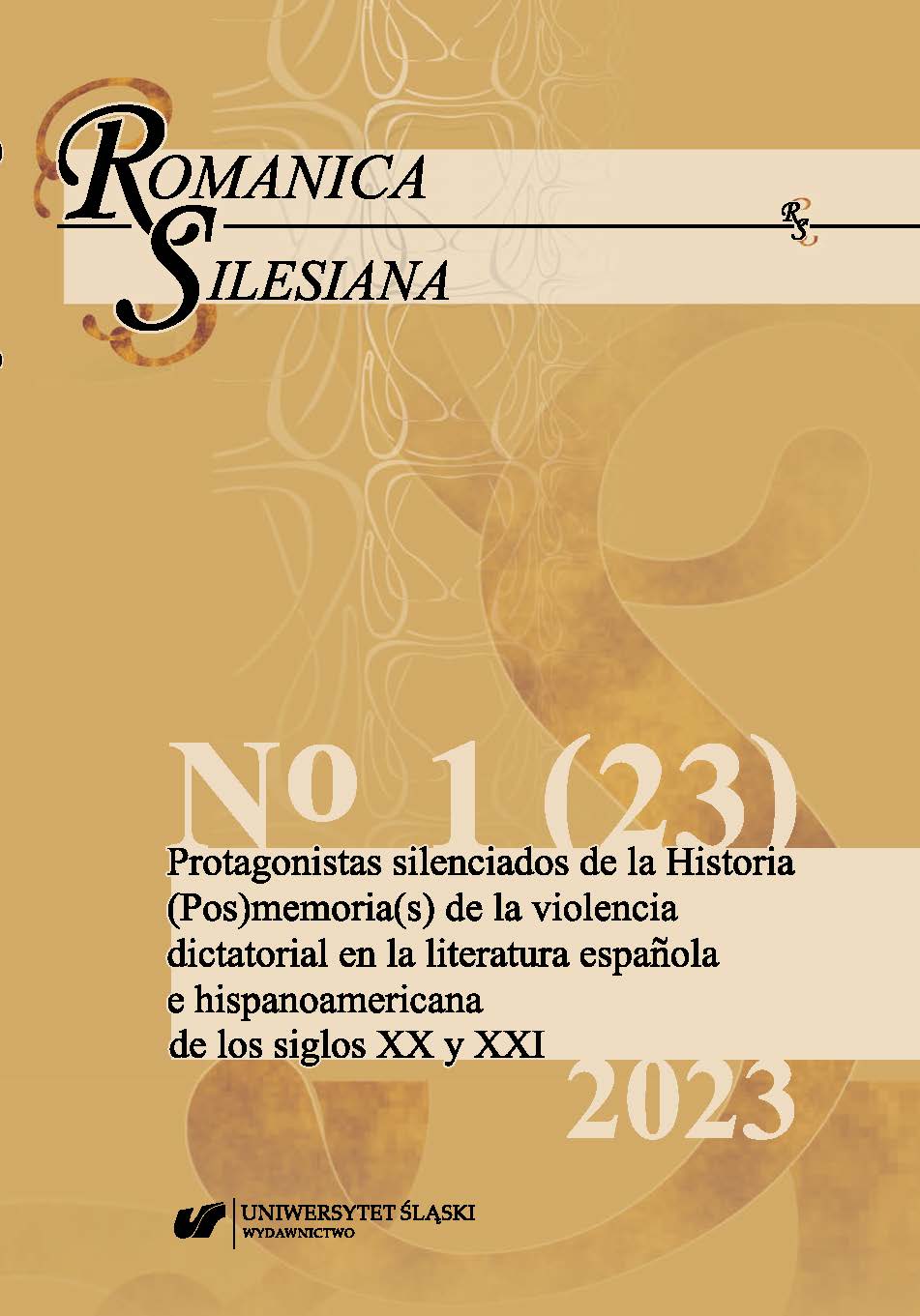
Juana Doña describes her book Desde la noche y la niebla as a novel-testimony, but not an autobiographical one. This story about her life as a militant in the communist ranks, the Spanish Civil War, and her imprisonment mark the narrative evolution that transgresses any taboo imposed by Francisco Franco’s censorship. Doña relies on her memory and her present self-awareness to remember and decide, respectively, which events are related, and which are silenced; how actions are reaffirmed, and which information is omitted; and how the narrative pronoun changes according to her own life or the collective struggle. The book functions as an individual catharsis, both for the author and the readers. I propose to analyze the writing process of this book as a promotion of justice weapon, following Kimberly Nance’s theory about the ethical decisions made by the author of the testimony and inferring a new role for the reader as a timeless agent in social struggle.
More...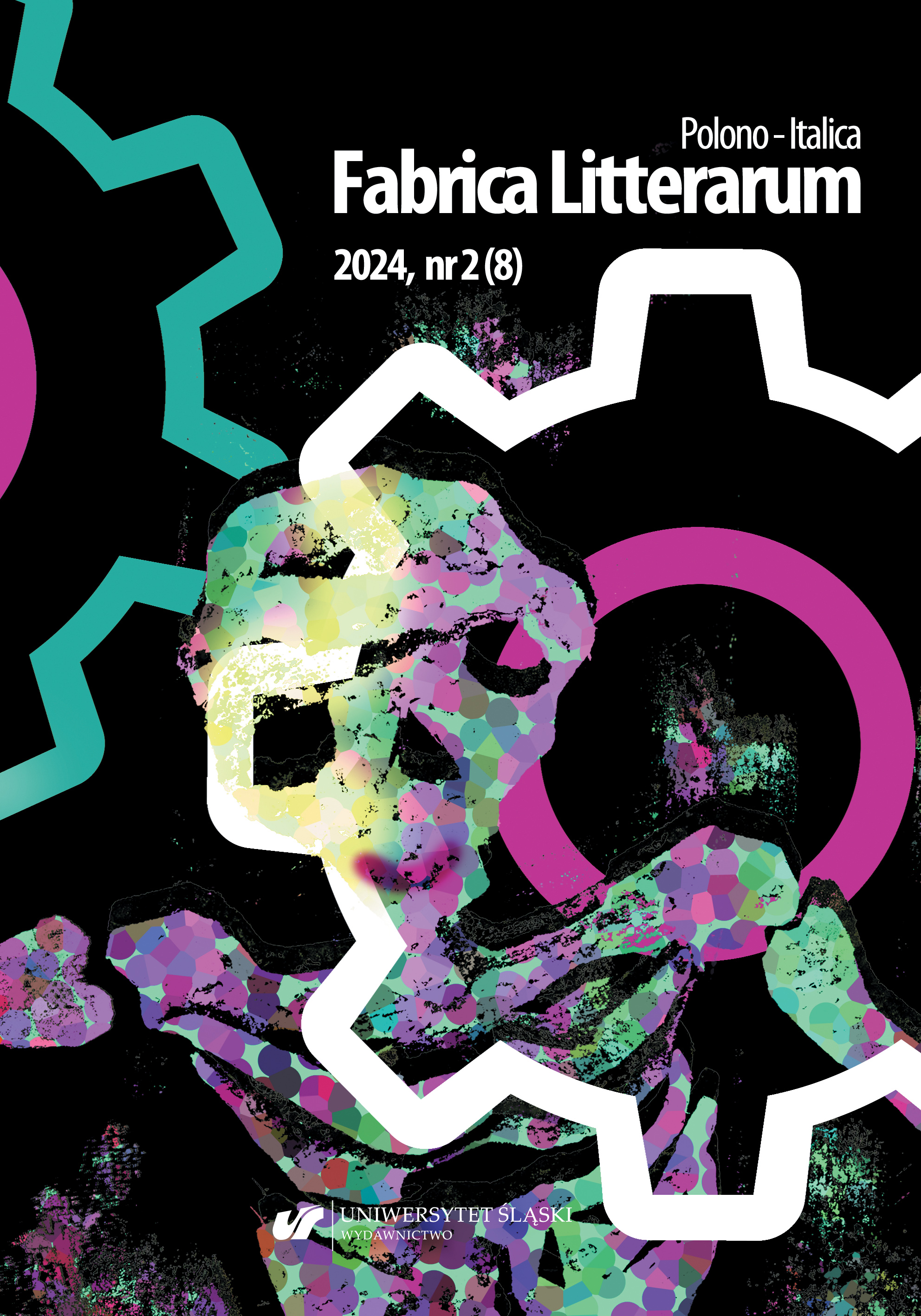
This essay explores the philosophical implications inherent in Samuel Beckett’s most enigmatic and metonymic late theater work, Not I, even as he frequently abjured any interest in philosophy, which he claimed neither to read nor to understand. The play is profoundly ontological, however, and its metonymic stage image engages the classical philosophical conundrum of the relationship of the part, a piece or fragment, say, to the whole, an issue with which Beckett has at least been intrigued for most of his creative life.
More...